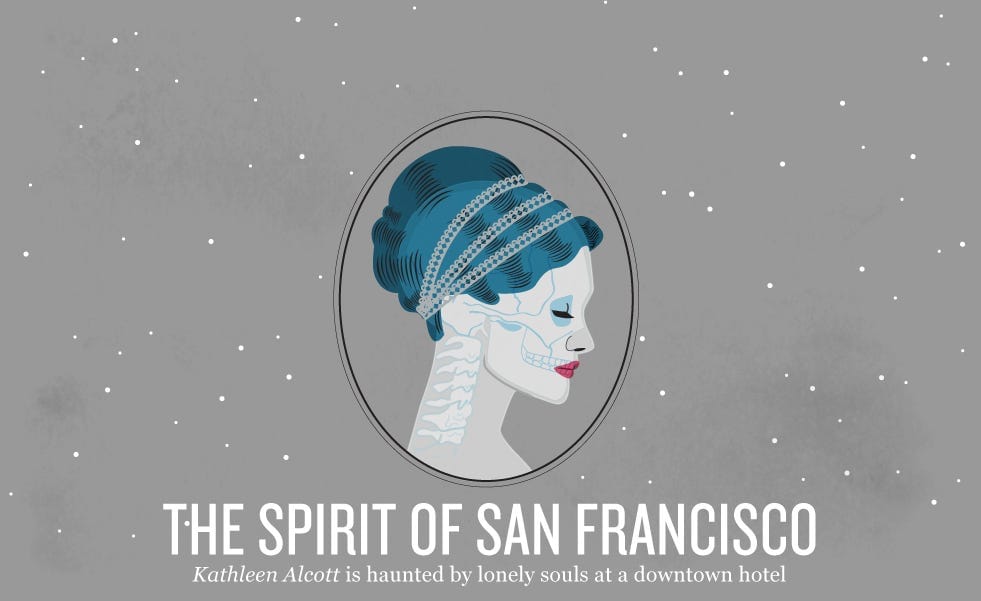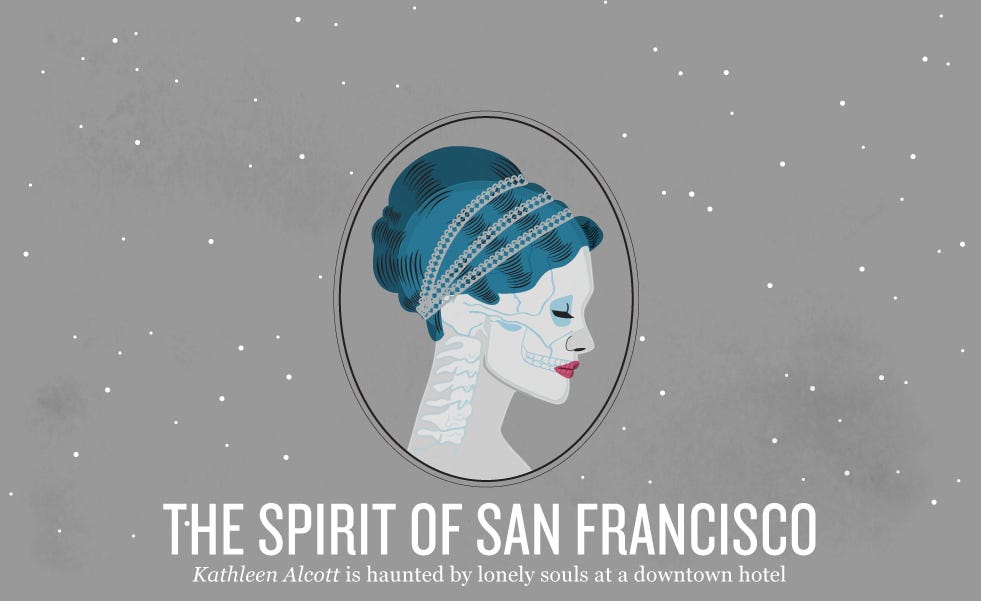
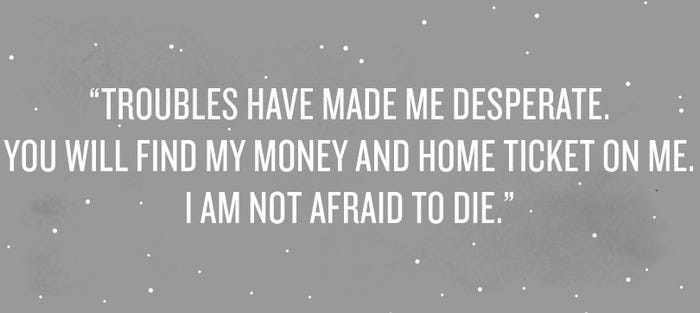
By K. Alcott
So reads the farewell note from Florence Cushing, who hurled herself from the seventh floor of Hotel Paisley at 432 Geary in 1911. Several years ago I wandered into the building she left so abruptly. A friend of mine had a job at the front desk and liked to tell wild stories about the guests and residents. I was struck in particular by the references he made to an old woman, Iris, who’d been in the hotel for decades, who always asked for mail but never got any. She sometimes sat on the worn, grand lobby steps making sad, primal noises.
Situated on the edge of Union Square and the Tenderloin, what is now the Union Square Plaza Hotel stands at the intersection of commerce and poverty, tourism and grit. The brick building leans at an angle, and an intricate wrought iron fire escape clings desperately to its edge.
I check into the hotel at 2:30 p.m. My plan is to talk to Iris and the others who pass through the lobby, and pin down what it is about the place that is so unsettling, so intriguing.
It is rich with history and wonder, and yet most people on Geary walk by without a second glance.
I’ve only just learned of Florence this morning, while researching the Hotel Paisley in the public library. I couldn’t have asked for a better story than hers; I also couldn’t have asked for a worse one.
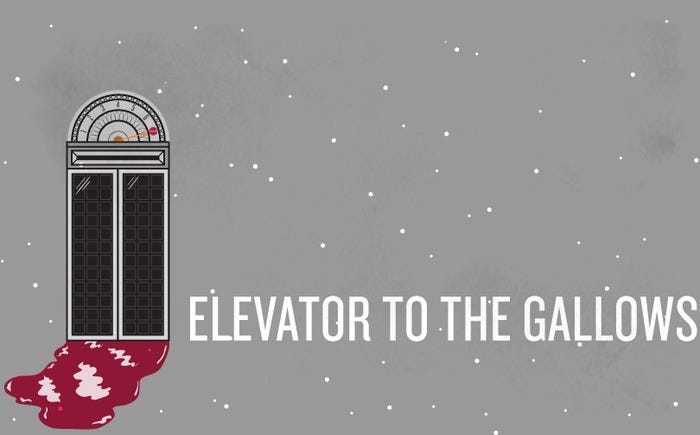
The lobby couldn’t hide its once-glamorous sheen if it tried. True, the off-white paint is many layers too thick, and the classically rounded front desk is slightly chipped, but the white marble floors remain immaculate.
The elevator states its maximum capacity as four, and it trembles in almost humble apology as it carries me to the fifth floor. My room, number 509, features all the standard characters: an inoffensive floral coverlet, an unused Gideon’s Bible, an outdated phonebook in the nightstand.
The lights flicker and I wonder if the hum of electricity is the buzz of something else. It’s when I draw the curtains that I realize my room faces the lot that Florence, a woman described as sharing my brown hair and light blue eyes, hurled herself onto almost exactly 99 years ago. The window is barely two feet above the floor — that is to say, it falls just below the height of my weak knees.
I rush back down to the front desk to ask Jesse Rilleau, the clerk, for a map of the seventh floor. He is in his early twenties, messily handsome, and inquisitive; he wants to know why I need one. I explain about Florence and her seventh-floor jump and he moans; he had no idea. He determines there are three rooms on that floor that face the back lot where she met her death — 708, 709, or 710.
After Jesse hands me the map, I turn and see Iris. I recognize her instantly. She’s been told in advance of my arrival by Jesse but doesn’t receive me well. I smile most sincerely and put out my hand; she denies it.
“I don’t know you. You don’t know me,” she says, “And I don’t understand why you want to talk to me.” She maintains that she doesn’t want to talk to me, but then does for over an hour. She stresses that she keeps to herself, that she likes being alone.
“I have one friend, a real sweet girl,” she says, “and I won’t even tell her where I live. What if she comes over and forgets something?”
Iris has been in the hotel more than 20 years, and San Francisco much longer. “On the street out there,” — and she sweeps her hand in the tradition of a grand storyteller — “there were high-class people. Hats, gloves, high heels. More love in their hearts. Everything is different now. People push you on the bus. Fast, fast, fast, off to the grave.” Her face is an intricate map of wrinkles, and her remaining teeth are framed in an excess of fuchsia lipstick.
She tells me she likes the hotel because it’s quiet, because it’s the same even though the world outside has transformed. I ask Iris whether she knows about the woman who leapt out of the building, and she asks me the departed’s name, as if Florence might be an old friend of hers. Then she poses the question no one can answer.
“Why did she jump?”
“She was sad? I never get sad,” Iris asserts crankily. “Never lonely. I have no family, and never lonely. ”

The sun dips behind the gilded arches of the American Conservatory Theater, and a gospel quartet starts in on a medley of upbeat songs. I head across the street to the Pinecrest Diner and settle into a padded booth. I gaze up at the wicker fans and wait for my hamburger.
Later, I return to the hotel disheartened. None of the residents wants to talk, and all the tourists have the same thing to say: “We chose this hotel for the location.”
Jesse takes me on a tour of the basement, and it’s nothing less than a museum: a dusty sandwich board advertising “Modest Elegance,” an excess of ornate silver lamps, a lone green and beige striped chair. I ask about an ancient, stickered suitcase and he tells me with a shrug, “Someone probably left it in storage. People do that a lot.”
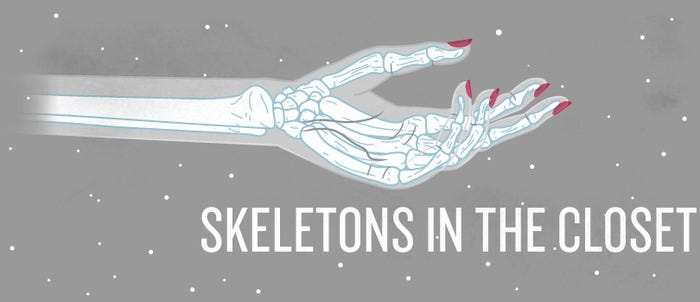
At midnight I’m in the elevator and my sole fellow passenger, a young guy in a soft aqua T-shirt, turns to me: “This is some hotel, huh?” My eyes light up and I tell him I’m writing a piece about the hotel, that it actually has quite the history. His skin pales, his eyes narrow, and he holds the elevator, which has reached his floor. “It’s haunted, isn’t it?” he asks. We head to his room and I turn on my voice recorder; for the next hour, I barely speak.
This man, Zimo Huang, was born and raised in Beijing, and he tells me about the returning vision he had as a child: a skeleton, looming over his bed, the skull looking down at him. He suffers Tourette’s syndrome, and his parents assumed he was possessed, took him to specialists and witch doctors in tiny, faraway villages. Given his parent’s suspicions of something evil living inside him, he never told them about the skeleton and the paralyzing fear until he went back to China in 2002.
Zimo’s otherworldly experiences are so deeply personal that I feel silly looking for a woman who died 99 years ago. I transition our conversation back to the hotel, and he tells me he knew immediately after exiting the elevator that there was something beyond the norm here.
Zimo and I walk up and down the floors. He points out the feng-shui faux pas that practically beg spirits to linger. He makes a guttural noise when I bring him to a strange foot-wide stairway that leads down the back of the hotel. Spirits can escape easily through such narrow, awkward passages, he says. Humans can’t. We sit on the shivering fire escape outside a dead-end hallway and smoke. When the rails shake, his Tourette’s slightly worsens.
He walks me to my room and we hug. I’m both sad to see him go and legitimately frightened to be alone, although I have no idea that my stay will threaten to end on the same note as Florence’s.

I don’t sleep. I sit on the fire escape and think frantically of the lives that have passed through here. I realize fiercely that, unlike Florence, I am afraid to die.
At 5:30 a.m. I’m up on the roof to watch the sunrise. The Bible I brought to prop the door open does me no good. The door shuts quickly, like a mean punch line, and I’m locked out. In the dark, rooftops are like secret cities of their own, the angles and ledges leading onto different frontiers, the fans whirring with industry.
I wait for the day to start and once again I’m looking at San Francisco. Hundreds of feet below on Geary Street, shopping carts brimming with whole lives begin to move, and the busses clear their throats as they ease up the hill. It’s Friday. I have a job to get to and no cell phone.
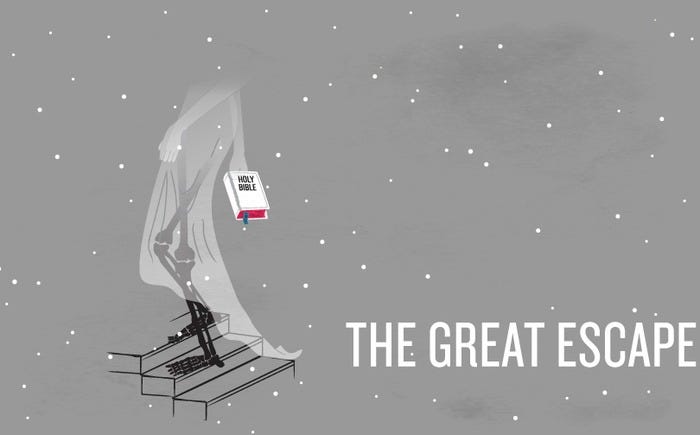
I climb over several walls and find a sturdy looking fire escape. I lead myself down and can’t help but look below me — Florence’s drop was long, unforgiving. The ladder is strictly vertical for the first four stories and shakes nearly as hard as my knees. I forget I’m not a praying woman and talk to myself like the people who sleep in doorways.
When I reach the final platform, I’m at a window that leads to the hallway of another hotel entirely. The carpets are plush, and the elevator advertises a spa and a gym. When I cross the lobby, the suited concierge smiles and asks how I slept.
Back in room 509, I rub the miniature bar of soap over my body till I’m raw, but the water isn’t hard enough and the obstinate soot lingers. I’m glad to be alive. I put the Bible back into the drawer of the nightstand.

Rooms at the Union Square Plaza Hotel range from $69–$109. Do your thinking over a cup of coffee at the 24-hour Pinecrest Diner, or grab a drink at the nearby High Tide, where cries of “See you tomorrow” are heard frequently.
Design: Jayde Cardinalli



